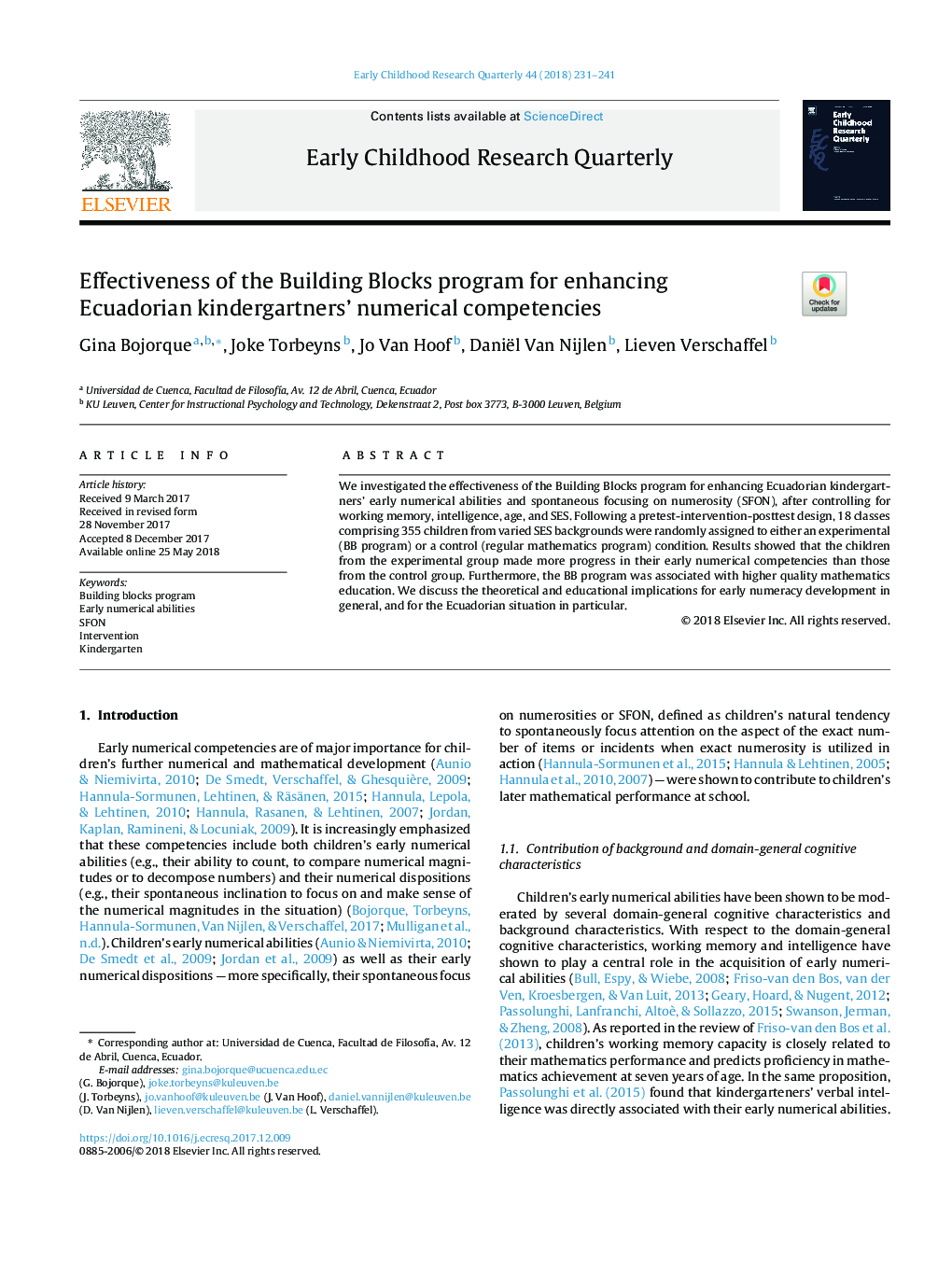| Article ID | Journal | Published Year | Pages | File Type |
|---|---|---|---|---|
| 6840611 | Early Childhood Research Quarterly | 2018 | 11 Pages |
Abstract
We investigated the effectiveness of the Building Blocks program for enhancing Ecuadorian kindergartners' early numerical abilities and spontaneous focusing on numerosity (SFON), after controlling for working memory, intelligence, age, and SES. Following a pretest-intervention-posttest design, 18 classes comprising 355 children from varied SES backgrounds were randomly assigned to either an experimental (BB program) or a control (regular mathematics program) condition. Results showed that the children from the experimental group made more progress in their early numerical competencies than those from the control group. Furthermore, the BB program was associated with higher quality mathematics education. We discuss the theoretical and educational implications for early numeracy development in general, and for the Ecuadorian situation in particular.
Keywords
Related Topics
Social Sciences and Humanities
Psychology
Applied Psychology
Authors
Gina Bojorque, Joke Torbeyns, Jo Van Hoof, Daniël Van Nijlen, Lieven Verschaffel,
